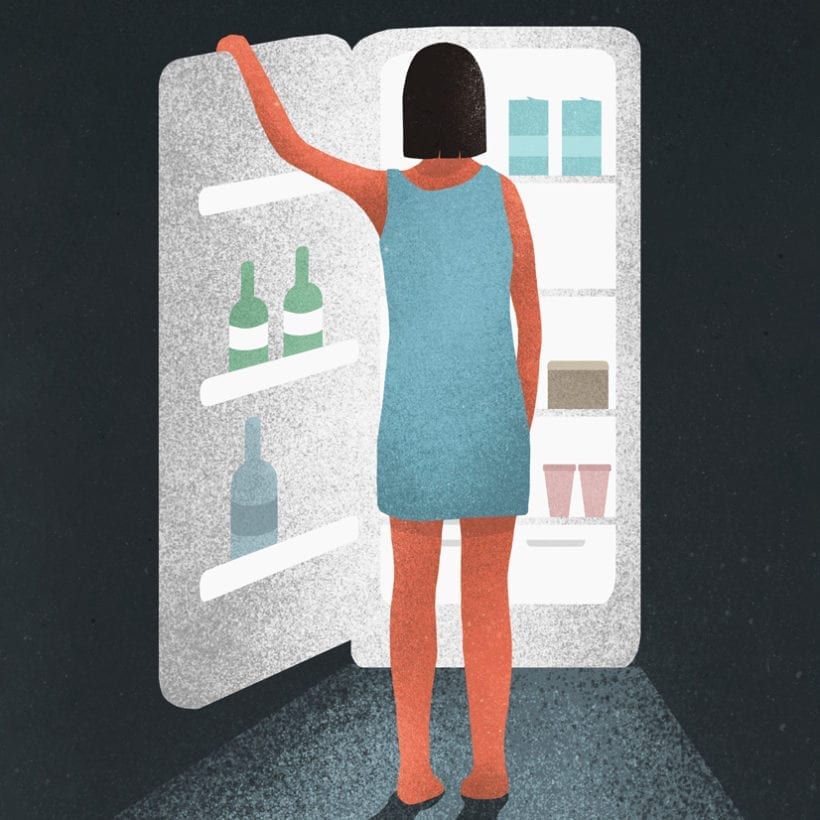When you were little, you were likely taught the primary function of your heart in Phys. ed. class: It works as a pump that brings blood containing oxygen and nutrients to the rest of our body and fires off electrical signals to the muscles to help them contract, explains Jennifer Chao, MD, Cardiologist.
You always understood the main gist of its importance, but now that you’re older, you’re more aware of what’s at stake: Heart disease is the leading cause of death in the U.S. But you don’t have to sit back and be a statistic. Your lifestyle habits are crucial in increasing or decreasing your risk of heart disease, especially as you age.
Heart health comes down to day-to-day decisions, explains Dr. Chao, including how we choose to get to work, the food we eat, and the activities we participate in during our free time. “It is important that someone lives their life mindfully when it comes to heart health because those decisions we make every day when we wake up can contribute to higher blood pressures and heart rates, causing long-term cardiovascular damage,” she says.
Here, she and other medical experts share some ways you might be unknowingly increasing your risk for heart disease — and what to do to reduce that risk.
Living a mostly sedentary lifestyle
You may have heard the adage, “sitting is the new smoking,” meaning that the impact of living a sedentary lifestyle can be as devastating to your health as smoking. While this is certainly debatable by clinical standards, there’s no denying that spending too much of your day sitting or not moving physically can be detrimental to your health. Therefore, the American College of Cardiology recommends 150 minutes per week of moderate-intensity exercise or 75 minutes per week of high-intensity exercise, each week.
“You can incorporate exercise as part of your daily routine by taking the stairs instead of the elevator or briskly walking as you do errands,” says Suzanne Steinbaum, M.D. “I always say that exercise is the best medication, as it decreases blood pressure, maintains weight, keeps the arteries healthy, and increases the feel-good hormones, which can help your heart too!”

Consuming a diet that is not rich in nutrition
Unfortunately, your eating habits could put you at risk for heart disease, especially if you’re consuming a diet high in salt. “The American Heart Association recommends no more than 2,300 milligrams (mg) of salt daily, but many Americans are pushing almost 3500 mg due to eating things like frozen meals,” says Dr. Chao. “Over time, high salt intake leads to high blood pressure, which could cause heart disease.”
Dr. Steinbaum recommends The Mediterranean Diet to her patients since It’s rich in monounsaturated and polyunsaturated fats found in almonds, avocados, fish, and olive oil and is also high in soluble fiber found in foods like complex carbohydrates, legumes, fruits, and vegetables. “In eating a diet filled with healthy vitamins, minerals, and omega-3 fatty acids, you can reduce the possibility of developing heart disease,” she says.
Not getting enough sleep
You know that sleep is important and that you should get around seven to nine hours each night. However, you might not know that not getting enough quality sleep could put you at a greater risk for heart disease. One study published in the Journal of the American College of Cardiology found that sleeping fewer than six hours per night creates a 20 percent higher chance of having a heart attack! “Getting good-quality sleep regularly lets your body get the restorative break it needs,” says naturopathic doctor and clinical nutritionist David Friedman, N.D., D.C. “Because both heart rate and blood pressure can abruptly spike upon awakening, frequent sleep disruptions can cause cardiac stress which results in a heart attack.”
Untreated depression
More and more research is showing a connection between depression and cardiovascular disease. “The reason as to why depression causes heart disease is multifactorial but likely includes direct pathways that involve inflammation and endothelial dysfunction,” explains Rigved Tadwalkar, M.D.. “Depression also indirectly contributes to cardiac disease as those who are depressed are less likely to seek help for heart-related issues or symptoms, and are less likely to make heart-healthy choices, like appropriate dietary modifications or obtaining a suitable amount of exercise.” If you’re experiencing symptoms of depression, seek help as soon as possible, as therapy and medications can significantly improve your condition
Skipping floss
File this in weird, but true: Not keeping up with your dental hygiene could pose a risk for heart disease. As Dr. Friedman points out, people with gum disease are more likely to have heart disease. “The bacteria that live in the mouth when you have gum disease can enter your bloodstream, enter the heart, and directly cause inflammation of the heart valves,” he says. “Flossing your teeth regularly can help reduce the risk of clogged arteries and inflammation in the heart.”
Stopping prescription medications
Suppose your doctor has prescribed you a specific medication to help reduce your risk of heart disease. In that case, continuing with the treatment plan is important unless you’ve discussed other options with your physician. “If you’ve been prescribed a statin, you still need to take it even if you feel fine, as high cholesterol typically has no signs or symptoms,” explains Dr. Steinbaum. “Taking a statin helps reduce your cholesterol levels and lowers your risk of heart attack and stroke; stopping these medications can put your heart back at risk of these complications.”

Drinking too much alcohol
You know these habits are destructive to your health, especially your heart. “The most common and legal substance abuse is chronic alcohol use which, in excess, can not only damage the liver but also hurts the heart,” says Thanh Nguyen, D.O. In addition, drinking more than the daily recommended amount of alcohol — no more than one drink per day for women and two for men, per the CDC — can increase your risk of high blood pressure, stroke, and obesity, each of which can put you at a greater risk for heart disease.
Living a high-stress life
Stress can negatively impact your health overall, warns Dr. Steinbaum. “With chronically elevated levels of stress, there is an increase in stress hormones in the body that can lead to high blood pressure, elevated heart rates, and inflammation,” she says. “Stress can also affect your sleep, and lack of sleep is a major risk factor for the development of heart disease.” She recommends paying close attention to your stress levels and identifying your triggers, whether it’s work, certain family members, or lifestyle behaviors. “Having tools to combat stress is important, whether it is relaxation practices like meditation and yoga or talking to a friend,” Dr. Steinbaum adds. “And don’t hesitate to reach out and get help when needed.”







